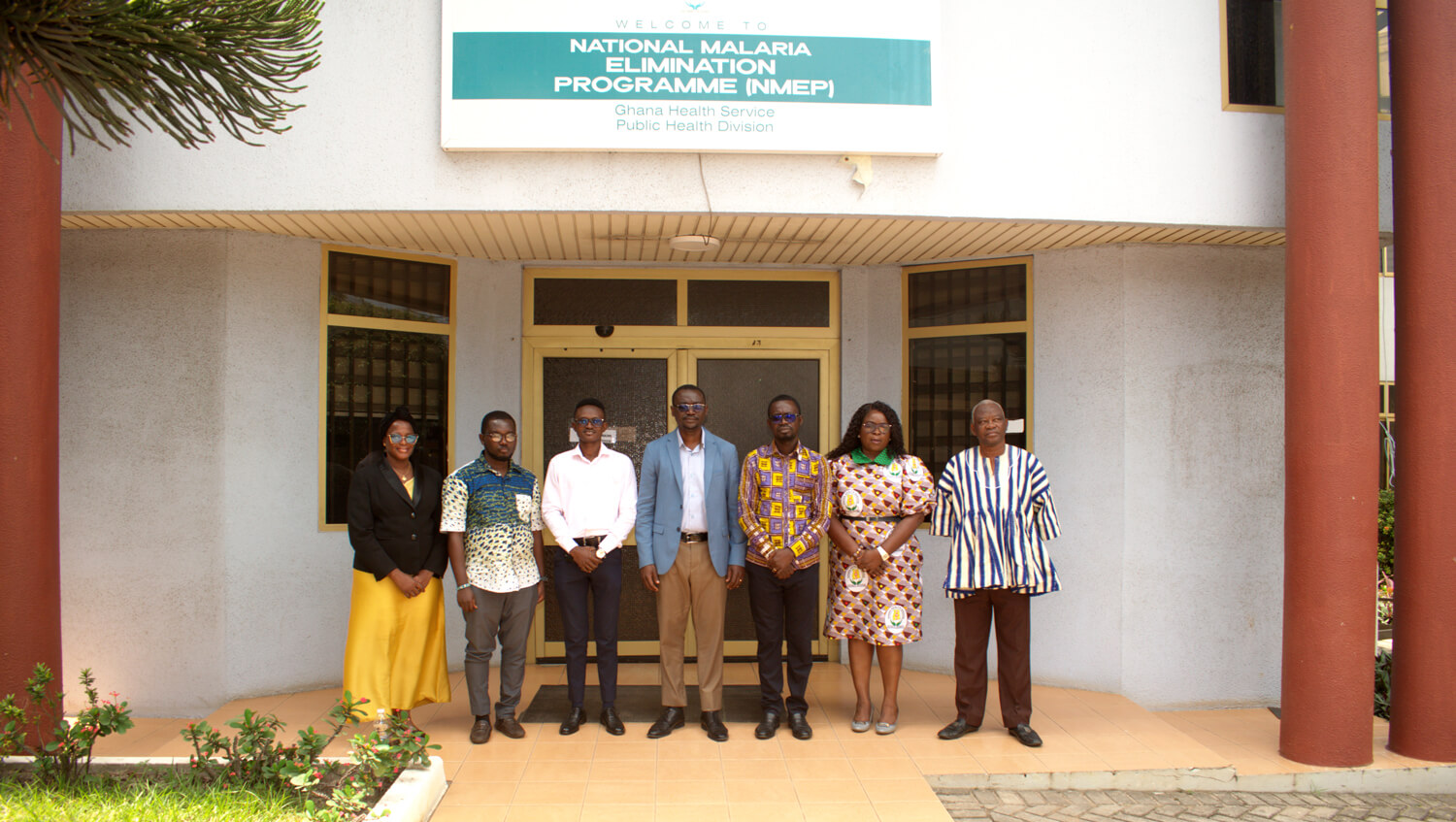
As part of its July 2025 stakeholder engagement, the Centre for Health System Strengthening (CfHSS) paid a courtesy call on the newly appointed Programme Manager of the National Malaria Elimination Programme (NMEP), Dr. Paul Hilarius Asiwome Kosi Abiwu, and his team. The meeting served as both an introduction and a technical engagement focused on evaluating innovative diagnostic solutions to support Ghana’s malaria control and elimination efforts.
The central focus of the discussion was the miLab diagnostic device, a fully automated, AI-driven tool developed by NOUL, South Korea. The miLab platform is designed for rapid malaria detection and is capable of identifying all Plasmodium species and life stages within 15 minutes. With its cartridge-based design, offline operability, and three-hour battery life, miLab is well-suited for use in resource-limited and remote settings.
Discussion with the National Malaria Elimination Program Team.
CfHSS presented evaluation findings from three pilot sites in Ghana, KNUST Hospital, Aniniwah Medical Centre, and Madonna Catholic Clinic. The data demonstrated strong diagnostic performance when compared to conventional microscopy and nested PCR, highlighting miLab’s potential to improve accuracy, reduce diagnostic variability, and support decentralized testing.
Dr. Abiwu welcomed the innovation and emphasized the critical need for funding, local validation, regulatory engagement, and multisectoral collaboration to support adoption and scale-up. He expressed optimism about miLab’s potential to enhance malaria diagnostic accuracy and operational efficiency at the community and facility levels.
CfHSS remains committed to supporting NMEP in exploring and integrating next-generation diagnostic technologies that contribute to Ghana’s malaria elimination goals.
Stay connected to CfHSS for updates on diagnostic innovations and health system strengthening initiatives across Ghana. Follow us on LinkedIn: Centre for Health System Strengthening, engage us via info@cfhss.org

